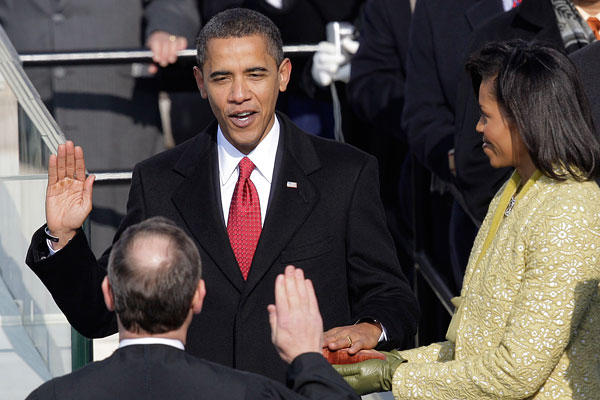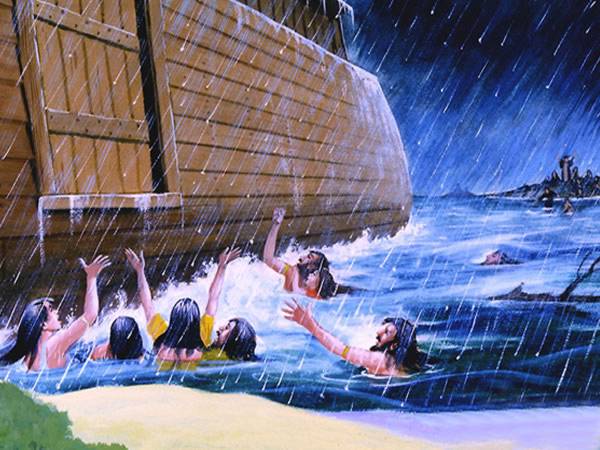
I haven’t written anything like this in a long time. I used to write about philosophical topics on a regular basis, and it seemed to flow naturally, but for some reason I lost that flow. Now I’m attempting to pick it up again, if just for this one post. What I’m about to write has come out of much thinking and first-hand experience. There were many factors that brought me to this realization, and I think I’ve let it stew quite long enough. I have to say, I feel like an athlete who hasn’t worked out in months, so forgive me if this reads like a torn ligament. Gee, I haven’t even really started yet.
How often have you heard of this business about relative truth? You know, the idea that there is no one absolute Truth (capital T) about life, therefore each of us is left to come up with our own truth (lower case t) based on our limited perceptions. I’ve heard it many times in my life, and I can share one instance with you now. In a college class I sat in a lecture hall with over 100 students. One day the professor asked, “Who out there believes in absolute Truth?” Of the 100 students, I counted 3 hands, including mine. Later on, during a smaller discussion class, I was asked to explain myself. I shared my beliefs about the world and God, and then I figured I got them when I said that everyone dies. Clearly it’s true that everyone dies! You’d think I would have converted the whole lot of them, but instead I ended up arguing with a girl who was offended by my truth claims. Isn’t that the way? Anyway, I want you to consider this concept and to accept that it is a real belief held by many. Maybe it’s not a fully formed belief, like a religious or political doctrine, but it appears to exist as a modern default perception about the world: at least for many. Remember, 97 out of 100 college students didn’t raise their hands.
Since the last presidential election, I have been experiencing a minor identity crisis. You see, I got pretty passionate about that election as I focused intensely on my own political perceptions about the world. I figuratively saw red, taking a steady dose of talk radio and Fox News. In the end, everyone I voted for lost and I went to bed physically ill. I had lost myself in politics, and it took crushing defeat to shake me loose again. Since then I have had to reflect on what it means to define myself as a conservative, and, more importantly, I have had to reflect on what it means to be a Christian. The experience makes me think of this scene in The Dark Knight Rises.
It’s the futile battle that I was fighting. Each punch(argument or way of reasoning) that I threw came back with greater force until I was inevitably knocked down and defeated by what had become the bane of my existence. I know this sounds very dramatic, but remember that I was so invested in politics that I literally developed a cold when Barack Obama won re-election. I perceived the world through a political lens that made it nearly impossible to see the truth of my situation. By the time I realized that I had made politics into an idol, I was flat on my back, wallowing in defeat. I found the truth, but only after I was broken.
The truth that I found came out of a more humble position. During the election cycle, I had become prideful of my “rightness” to the point where I lost sight of the truth of my folly. My folly was my obsession with politics, and particularly the faith I was misplacing in my conservative candidates. Certainly this must have been clear to those who knew me well, and I can say that at least one of my friends tried to show me the truth. Once again, I didn’t see things clearly until I was broken (humbled) by defeat.
The Bible is quite clear on this subject of pride and humility when it comes to one’s proximity to the truth. Wise King Solomon, who lived about three-thousand years ago, wrote down many proverbs that are recorded in the Bible. One of his most famous proverbs is:
“The fear of the Lord is the beginning of knowledge,
but fools despise wisdom and instruction.” (Proverbs 1:17)
This might seem like an odd thing to say, but at the heart of it is an understanding of pride and humility. To fear the Lord is to live with the perspective that you are not the highest authority in your life. Imagine if a child acted as if their parents didn’t exist. Do you see any way in which that child grows up healthy and well-adjusted? No, if a child chooses to go his or her own way, they will live with an ever-increasing pride that will blind them from any truths that don’t fit their particular desires or inflated self-image. It’s a child who views his or her parents with reverence, who acts with an understanding that they probably don’t know better than their mother or father, that learns to see the world outside of their desires. If you are your own best authority for truth, can’t you see how much harder it will be to see and accept any truth that challenges your pride? How much truth is outside of the small space between our heads? Solomon also wrote, “The way of fools seems right to them, but the wise listen to advice.” (Proverbs 21:2) The principle is simple, humility allows us to see the truth outside of ourselves, while pride keeps us stuck in ourselves, and limited to our own perceptions.
There are billions of truths (lower-case t) in the world, but there is only one Truth. What I have seen time and time again in my life is that the humble are usually much closer to Truth than the proud. The proud are slaves to themselves, and they can’t see past their own feelings and beliefs. The humble have learned, often through difficult circumstances, that they are not the greatest authority on what is true. They understand that the world is more than what they may feel, and the world is more than a canvas to be painted by their own experiences.
To apply this to politics in America, just ask yourself where you see pride. Is there pride on the far-left and the far right? is there pride in Washington? Is there pride on MSNBC and Fox News? Are people seeking to stroke their own egos by conflating faith and politics and forming an American identity based on pride? Where do you see humility? Where do you see it? Honestly, the first thing that comes to mind is Pope Francis. He has defined the beginning of his time in the Catholic Church’s highest position by going low, focusing on service and poverty. He has denied himself many of the luxuries afforded by his office in order to connect with the people. That is humility. He is closer to the Truth, isn’t he?
Finally, I will return to the example I started with The Dark Knight Rises. After Bruce Wayne is broken by Bane, he is cast into a hopeless prison and doomed to watch the destruction of his city. He builds his body and tries desperately to climb out of the prison. Each time, he ties a rope around himself and can’t make the final jump onto a ledge that would lead to freedom. Lost in a dream, Bruce sees a time in his life where he fell down a well and his father came to lift him up. His father asks, “Why do we fall, Bruce?” He wakes up in a cold sweat and receives a word from a blind man in a nearby cell. The prisoner tells Bruce that he lacks the fear necessary to make the climb. He tells him he must climb “as the child did. Without the rope. Then fear will find you again.” Fear, in this case, and when it comes to the fear of the Lord, is about having a right perspective: a humble perspective. Without humility, the climb is impossible. Without becoming like a child, and recognizing the higher authority — the Truth outside yourself — you will be weighed down by your own pride. Bruce didn’t have to listen to the blind man. Climbing without a rope is probably suicide. But he was desperate to get out, and humbled by his inability to do so. He was ready to listen, and to begin the climb of faith.
It is possible to get closer to Truth, but it only begins with the letting go of pride. Difficult circumstances can forcefully strip us of pride, but it is up to us whether that is the beginning of our humble climb or the beginning of an endless search at the bottom of the pit for any shred of our former glory. The first step toward Truth is a step down.









